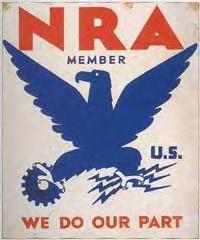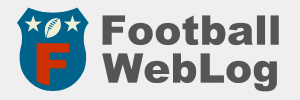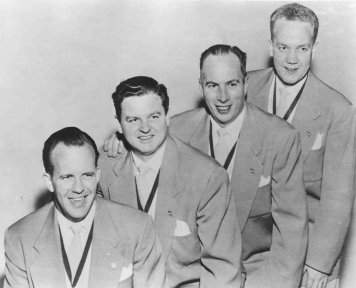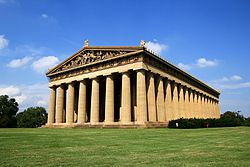Where Did the NFL Teams Get Their Names?

Where did the NFL teams get their names? In my previous post, I offered strategies and ideas for coming up with a cool name for your fantasy football team. One of my suggestions was to take a tip from the pros. Nearly all of the NFL team names have a tie with the city from which they hail, and my advice was to follow suit and have your fantasy team name have a connection with you. That got me to thinking: How exactly did each of the NFL team names originate? I did some digging, and this is what I found out:
Arizona Cardinals
The team now known as the Arizona Cardinals began as an amateur athletic club that was founded in 1898. The team was later moved to Normal Park, located on Racine Avenue, in Chicago, and given the name the Racine Normals. In 1901, team founder, Chris O’Brien, purchased used maroon jerseys for his team from the University of Chicago, but the colors had faded. O’Brien declared, “That’s not maroon, it’s cardinal red!” From that point on, the team was known as the Cardinals.
Atlanta Falcons
The name for the Falcons was chosen in a team naming contest. Julia Elliott, a high school teacher from Georgia, was the contest winner. Some of the many suggested names were the Bombers, Crackers, Fireballs, Firebirds, Knights, Rebels, Thrashers, and Thunderbirds.
Baltimore Ravens
Focus groups, a phone survey, and a naming contest were all used to determine the name for the Baltimore franchise. Eventually the team narrowed it down to three: The Americans, Marauders, and Ravens. A final fan contest voted for the name Ravens. The name refers to the poem, The Raven, written by Edgar Allen Poe. Poe spent a big part of his life in Baltimore, and is buried there.
Buffalo Bills
The name Bills was selected in a public contest that adopted the name of an old All-America Football Conference team that had played in Buffalo years earlier. The original AAFC Bills were named after a popular barbershop quartet of the same name, the Buffalo Bills.
Carolina Panthers
The name Panthers was the winning name chosen in a fan contest. The name is applicable because of the wild cougars, mountain lions, and panthers that can be found in the region.
Chicago Bears
In 1922, George Halas renamed the team from the Chicago Staleys to the Chicago Bears. He did this to identify with the team’s host at Wrigley Field, baseball’s Chicago Cubs.
Cincinnati Bengals
After being out of football for several years, the first coach of the Cleveland Browns, Paul Brown, wanted to become involved in professional football again. Brown led a Cincinnati-based ownership group that was awarded an AFL franchise in 1967. Brown chose the name Bengals as a link to a past team that played professional football in Cincinnati under the same name.
Cleveland Browns
The Cleveland Browns are named after their first coach, Paul Brown. Panthers was an early choice for the team because a team with the name Panthers previously played in the city, but it was rejected by Brown because the Panthers were atrocious, and the fledgling franchise did not want to be associated with a failed team.
Dallas Cowboys
GM Tex Schramm originally wanted to call the team the Rangers, but changed it to the Cowboys a few months before their first season in order to avoid confusion with the baseball team Texas Rangers. It was thought that the name Cowboys would give the team a heroic image.
Denver Broncos
As is the case with many of the NFL teams, the name Broncos was chosen through a fan contest. The contest was won by Wrad M. Vining of Lakewood, CO. The name was selected from 500 entries. The football team wasn’t the first to be called the Denver Broncos. A 1921 Denver baseball team in the Midwest Baseball League shared the same name.
Detroit Lions
The Lions were named by a group led by Dick Richards that purchased the franchise in 1934. They chose the name Lions to continue the jungle cat-related tradition started by the Detroit Tigers MLB team.
Green Bay Packers
Co-founder Curly Lambeau solicited funds from his employer, the Indian Packing Company. They paid $500 for uniforms and other supplies on the condition that the team be named after the packing firm.
Houston Texans
Team owner, Bob McNair, came up with the name. He was proud to call Texas his home, and wanted to honor his fellow Texans. The choosing of the name may also have been a nod to the AFL Dallas Texans, a team that eventually became the Kansas City Chiefs.
Indianapolis Colts
The franchise originated in Baltimore. The Colts were named, like so many of the other NFL teams, in a fan contest. The name reflects the history and tradition of horse racing in the Baltimore area.
Jacksonville Jaguars
The name Jaguars was selected in (you guessed it) a fan contest. The significance of the name is that jaguars apparently used to roam the streets of Jacksonville around the winter solstice.
Kansas City Chiefs
Team owner Lamar Hunt chose the name Chiefs because it was one of the most popular suggestions in a name-the-team contest. The name also paid tribute to then Kansas City mayor H. Roe Bartle. His nickname was The Chief for founding a Native American-based honor society tied to the Boy Scouts years earlier. Incidentally, one of the names being considered at the time was the Kansas City Mules.
Miami Dolphins
19,843 entries were submitted in a fan contest to name the franchise. Mrs. Robert Swanson of West Miami was one of 622 entrants to suggest the name Dolphins. Mrs. Swanson won lifetime passes to Dolphins’ games for being selected the winner.
Minnesota Vikings
Chippewas, Miners, Vikings, and Voyageurs were the frontrunners early on in the task to name the new Minnesota football franchise in 1960. The Vikings were chosen because of Minnesota’s place as the center of Scandinavian American culture.
New England Patriots
The franchise originated in Boston, and a fan contest was held to select the name for the new team. The most popular submission was the Patriots, and was the name chosen by team owner Billy Sullivan. The name reflects the area’s early role in American history.
New Orleans Saints
The city of New Orleans was awarded an NFL franchise on November 1, 1966. This is also the date of the Catholic solemnity All Saints’ Day. The name Saints was chosen because of this occurrence, and also because the name was fitting for the largely Catholic New Orleans area.
New York Giants
The Giants were named after the New York Giants baseball team (which moved to San Francisco in 1957). To differentiate themselves from the baseball team, they called themselves the New York Football Giants, and are still legally called that to this day. The name Giants is said to relate to the giant buildings of New York City.
New York Jets
In 1963, the franchise changed their name from the Titans to the Jets from among 500 suggestions. Some of the names that were bypassed were the Dodgers, Borros, and Gothams. Jets was chosen because the stadium they played in was situated between two major airports, and because the name symbolized the speedy, modern age.
Oakland Raiders
A contest was held by the Oakland Tribune to name the new franchise in Oakland. The winner was the Oakland Señors. After much ridicule and accusation that the contest was fixed – managing general partner Y. Charles Soda was known to call his acquaintances “Señor” – the team decided to change the name to the Oakland Raiders, the third most popular suggestion in the contest.
Philadelphia Eagles
In 1933, the franchise inherited the rights to the Philadelphia area after the Frankford Yellow Jackets went bankrupt and folded in 1931. Owners Lud Wray and Bert Bell named the new franchise the Philadelphia Eagles. They were inspired by the Blue Eagle symbol on Franklin D. Roosevelt’s New Deal National Industrial Recovery Act poster.
Pittsburgh Steelers
The Pittsburgh Steelers began as a semi pro franchise called the Hope-Harvey Football Club, founded by Art Rooney. The name was derived from the Hope Fire House, which served as the club’s locker room, and from a local doctor — Dr. Harvey. Doc Harvey was a sponsor and the team’s unofficial doctor. The team joined the NFL in 1933 as the Pittsburgh Pirates (in reference to their landlords at Forbes Field, the baseball Pittsburgh Pirates). In 1940, working with the Pittsburgh Post-Gazette in running a contest to select a new name, the team settled on the Steelers. The Steelers moniker pays homage to the city’s steel producing industry.
St. Louis Rams
The Rams franchise began their history in Cleveland in 1936. Attorney Homer Marshman was the founder. The name Rams was selected to honor the hard work of the football players coming out of New York’s Fordham University. The nickname for Fordham University was, and still is, the Rams.
San Diego Chargers
There are apparently several theories on what the name Chargers means. According to one source, the most plausible conjecture is that the Chargers are named after the steeds on which medieval knights rode into battle. This may be validated by the fact that the original Chargers’ emblem included the profile of a horse’s head. Regardless of the meaning, Gerald Courtney of Hollywood was selected as the winning entry in a name-the-team contest held in 1960.
San Francisco 49ers
The name 49ers has its roots in the Gold Rush of 1849. The tens of thousands of people that flocked to California to seek their fortunes mining gold were called 49ers. Allen E. Sorrell, an ownership partner in the fledgling franchise, is credited with suggesting the name.
Seattle Seahawks
The Seattle Seahawks were named in a fan contest. Out of 20,365 entries, 151 people suggested the name Seahawks, and team owners selected it as the winning name. The seahawk is a nickname for an osprey. Ospreys are summer (breeding) residents in the Seattle area.
Tampa Bay Buccaneers
A name-the-team contest consummated in the name Buccaneers. Buccaneers (a.k.a. pirates) frequented Florida’s gulf coast in the 1800s, hence the relation of the name to the Tampa Bay area. To dip further into the historical root of the name, French hunters, who dried meat on a frame called a buccan, were known as boucaniers. When some of the French allied themselves with British and Dutch pirates, the term buccaneer was applied to them all – not just the French traders.
Tennessee Titans
The Tennessee Titans were originally called the Houston Oilers. When the team moved to Nashville, owner Bud Adams announced that he was changing the name of the franchise to better connect with Nashville. He appointed an advisory committee to choose a new name with the mandate that it reflect qualities of power and strength. The selected name Tennessee Titans met Adam’s requirements, and it gave a nod to Nashville’s nickname, The Athens of the South.
Washington Redskins
The original home to the Redskins was Boston, and the team was initially known as the Boston Braves – the same name as a local baseball team that served as the football club’s landlord. The team moved to Fenway Park in 1933. After the move, the team was renamed to the Redskins. The name is purported to have been in honor of then-coach Lone Star Dietz, a Native American. (Dietz claimed to be part Sioux, but some people question his actual ancestry.)
I hope you enjoyed reading about how the NFL teams came up with their names as much as I delighted in researching it. It’s a fascinating topic! Let me know your thoughts, or if you have anything to add. I would love to hear from you.
As always, run to daylight.
~Randy



